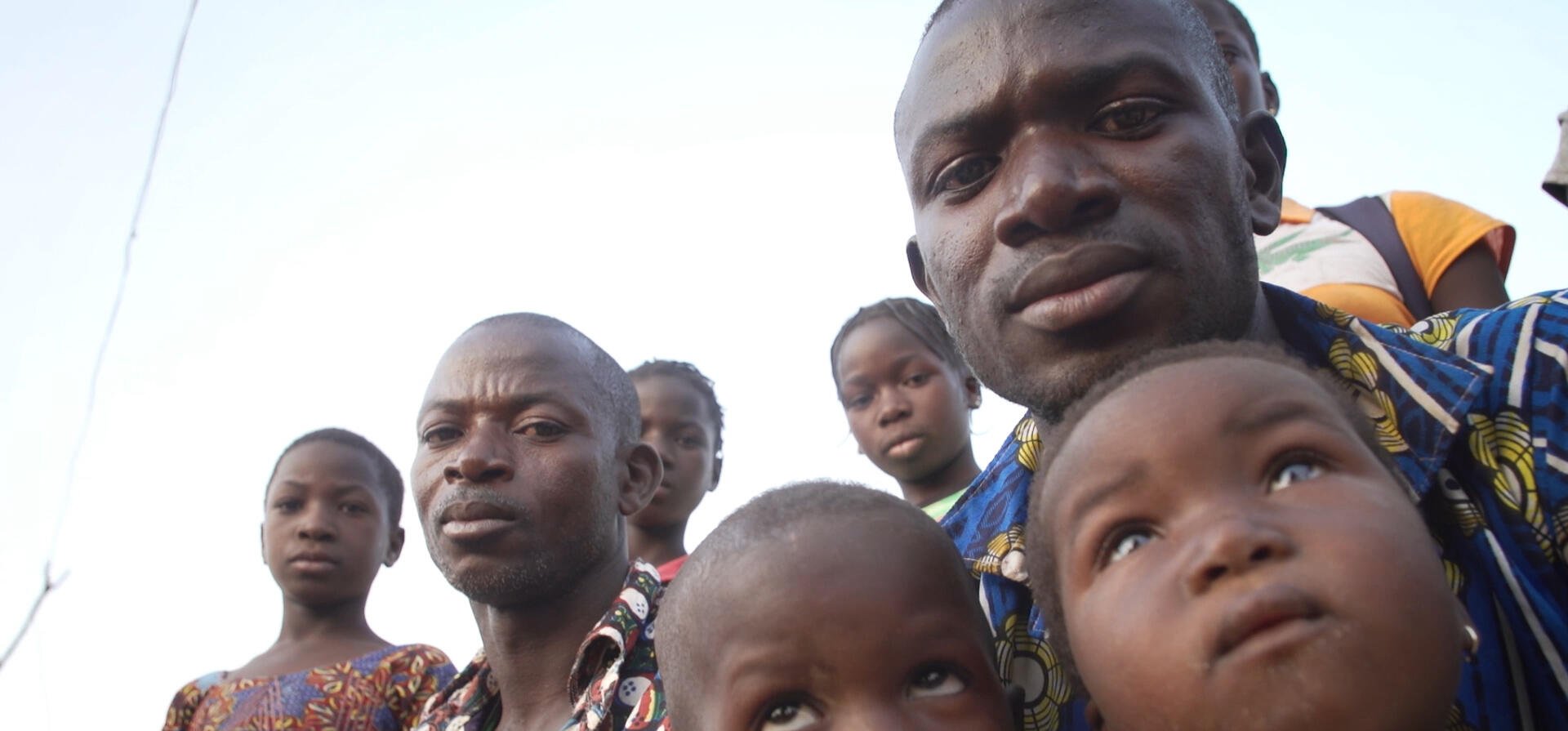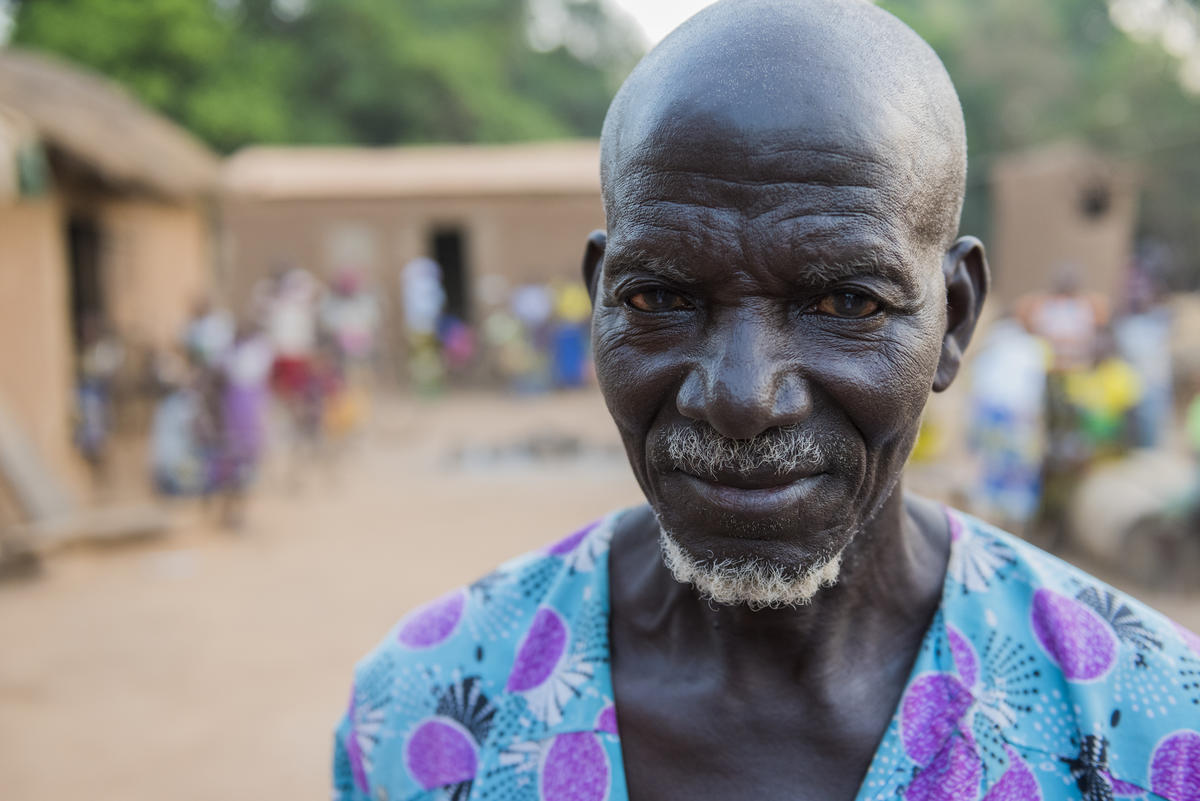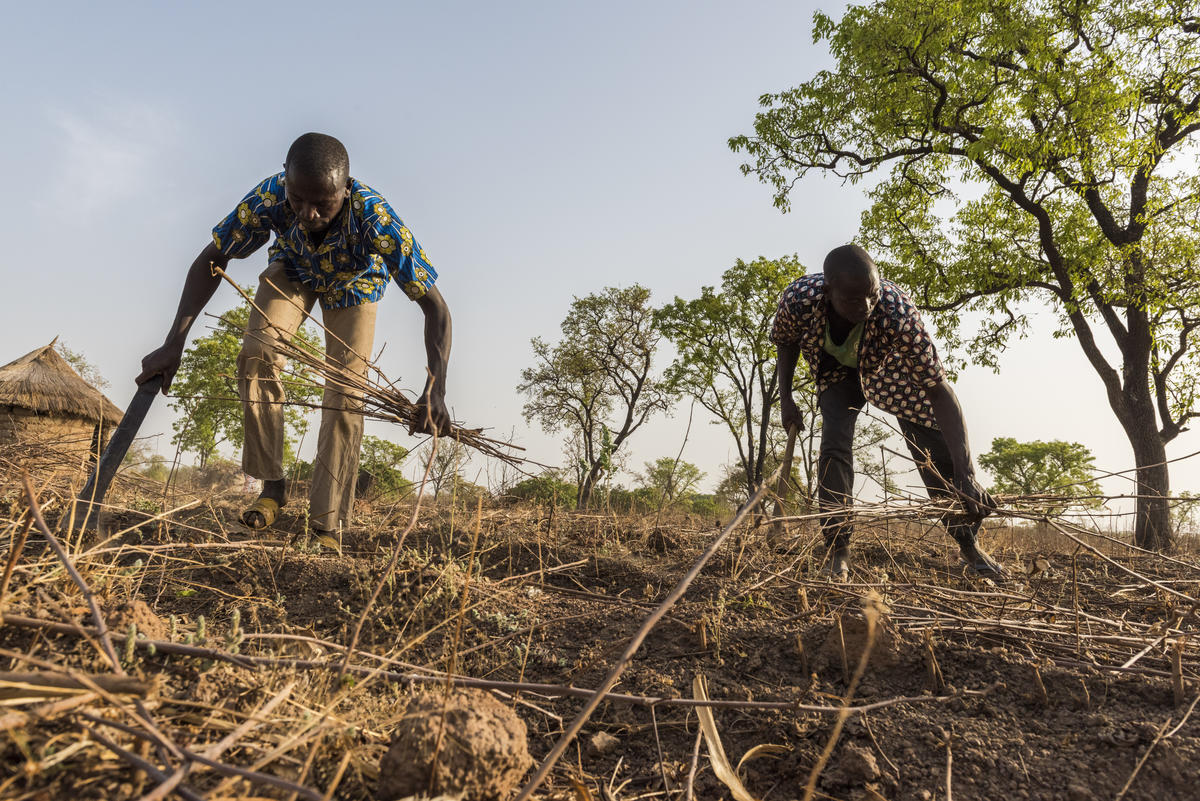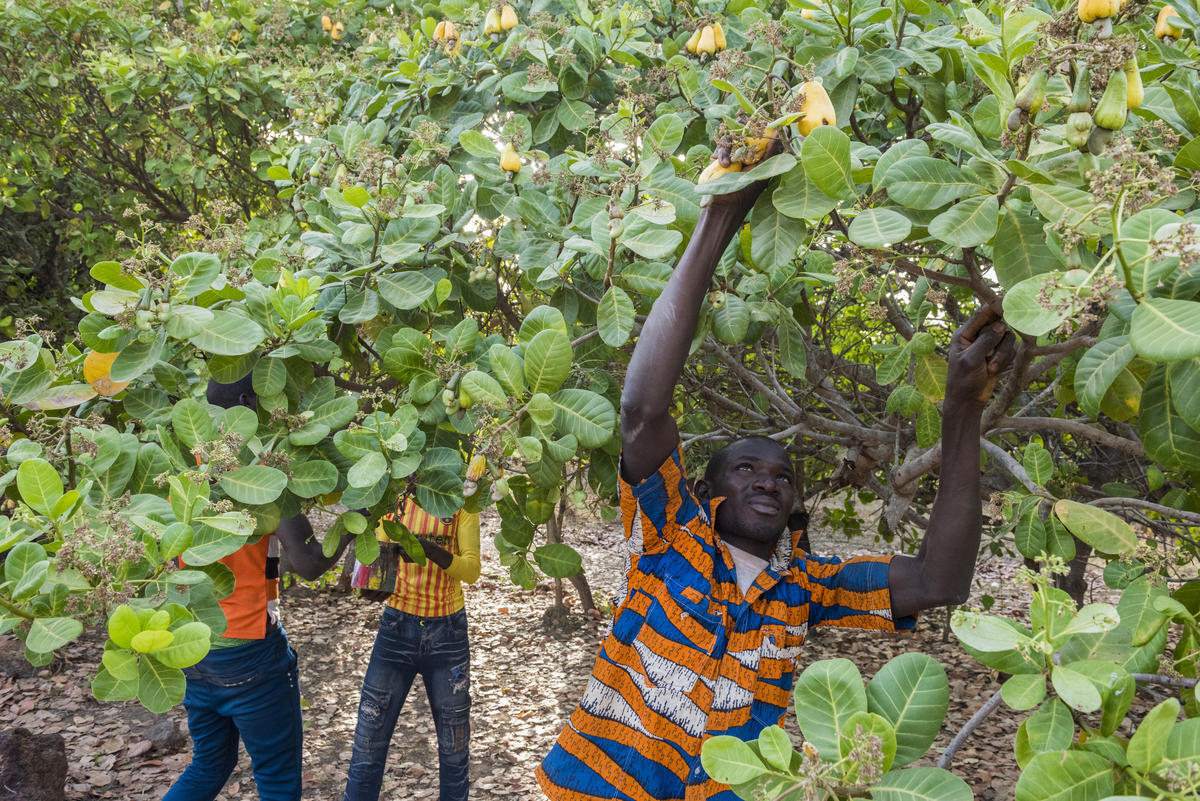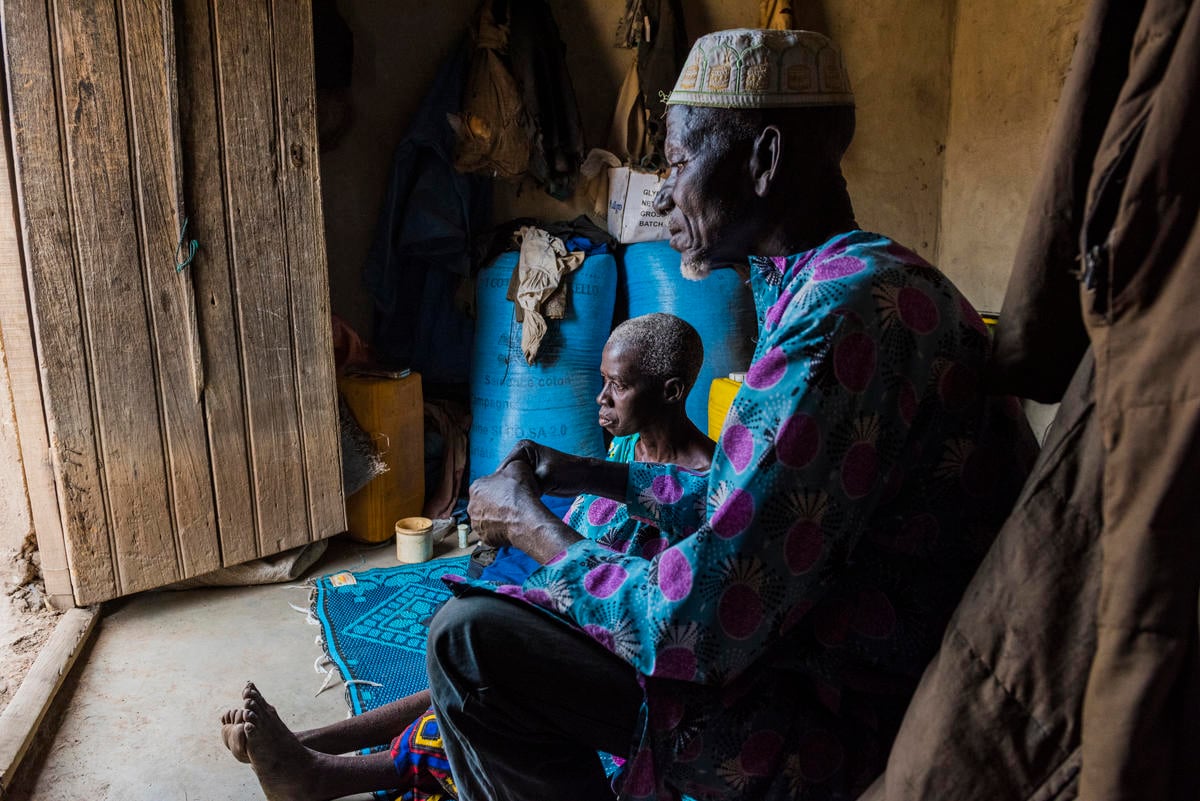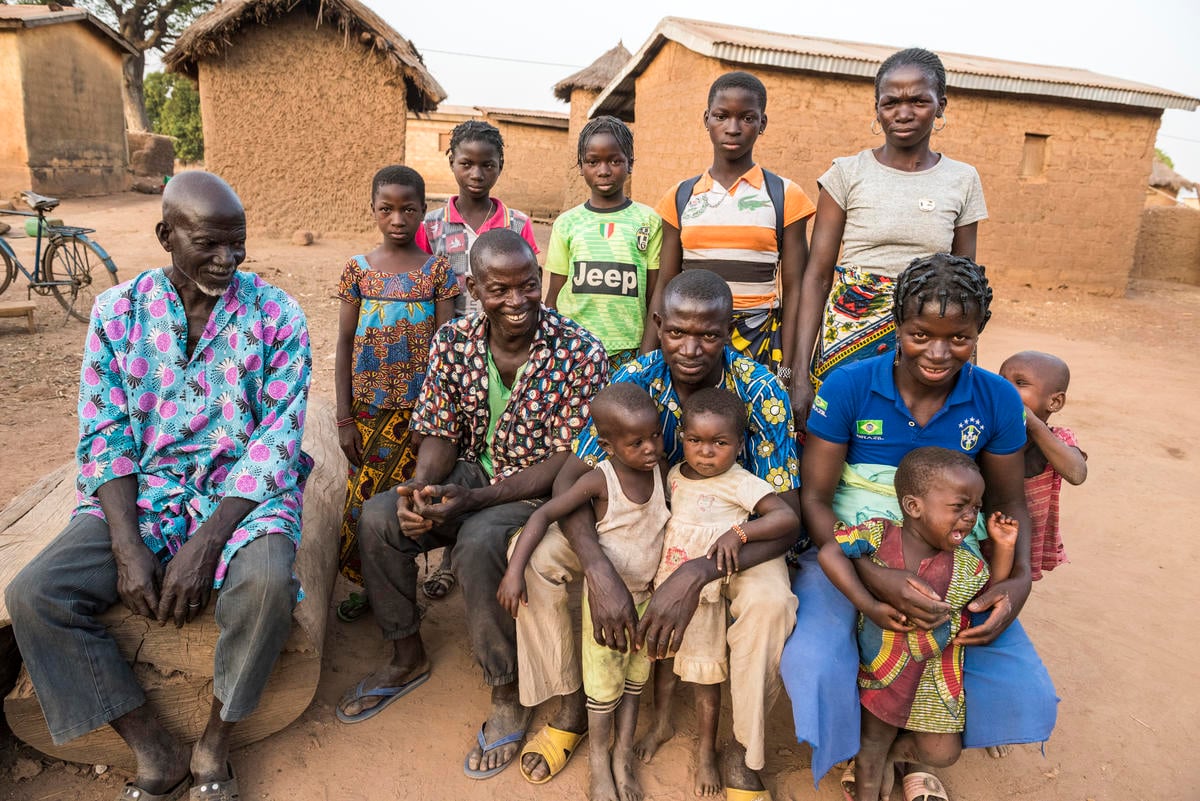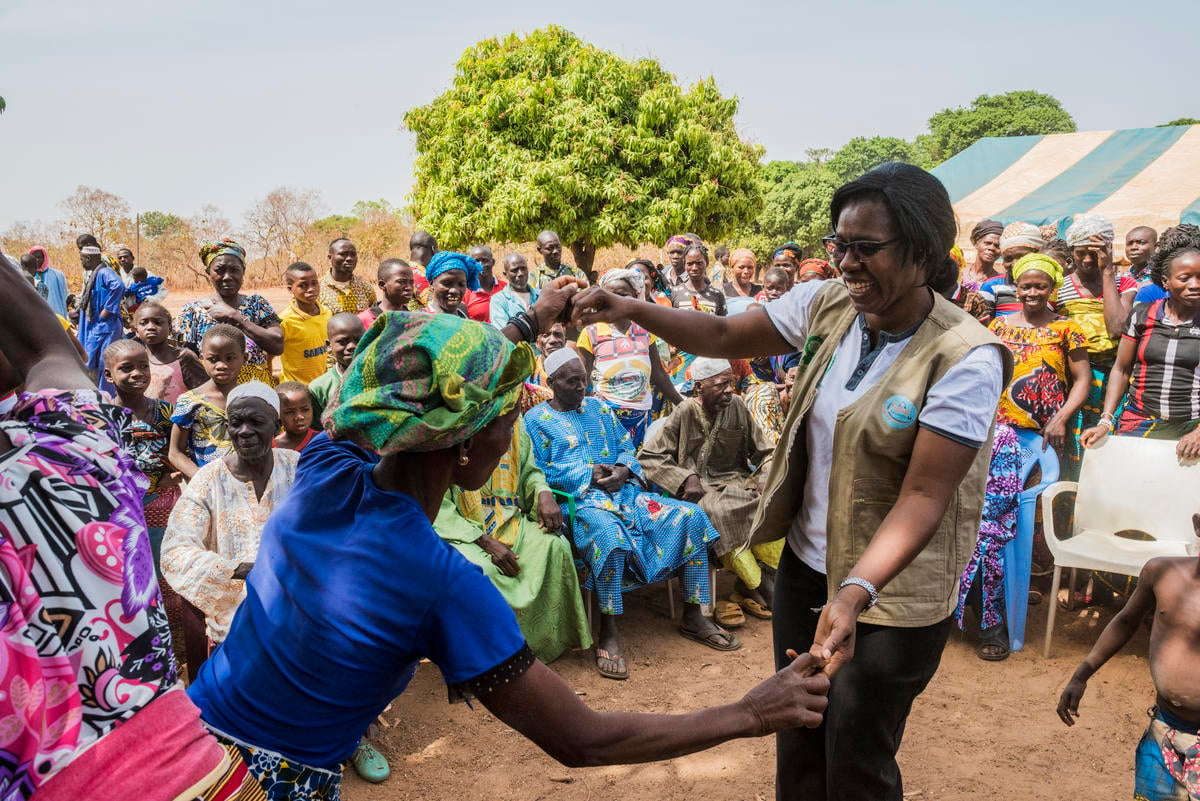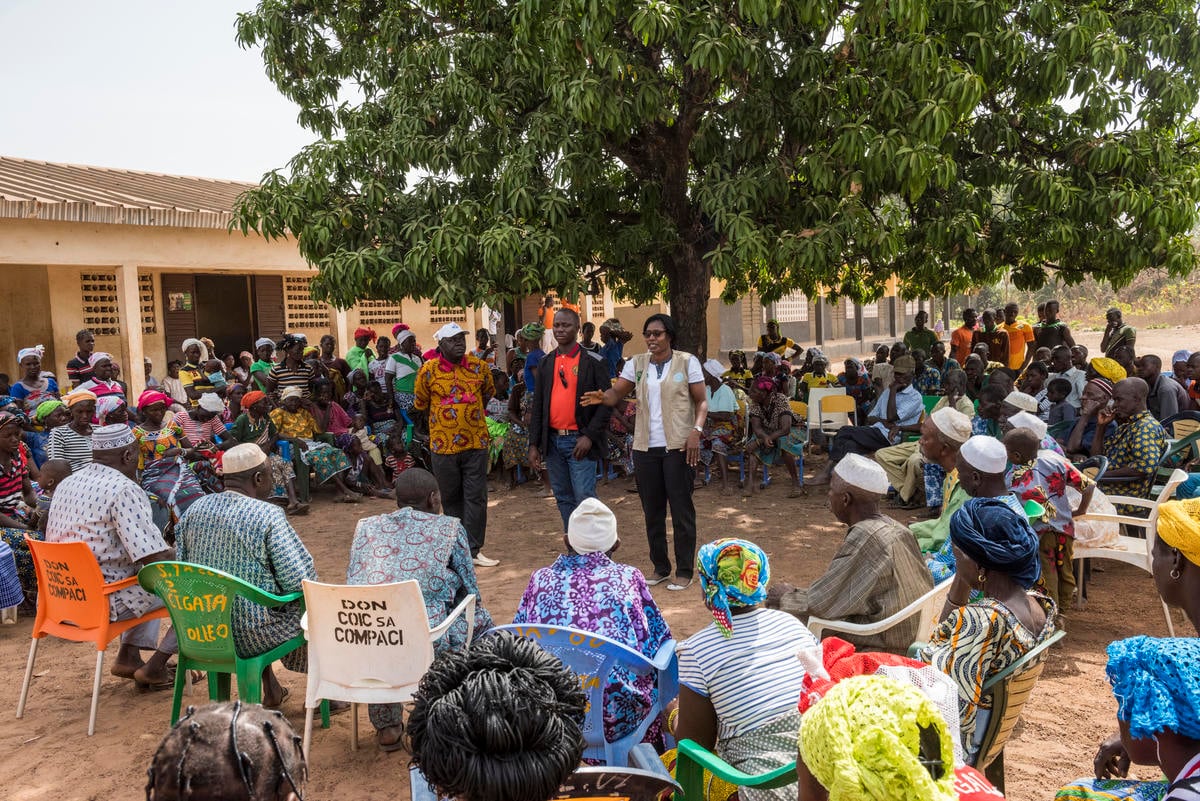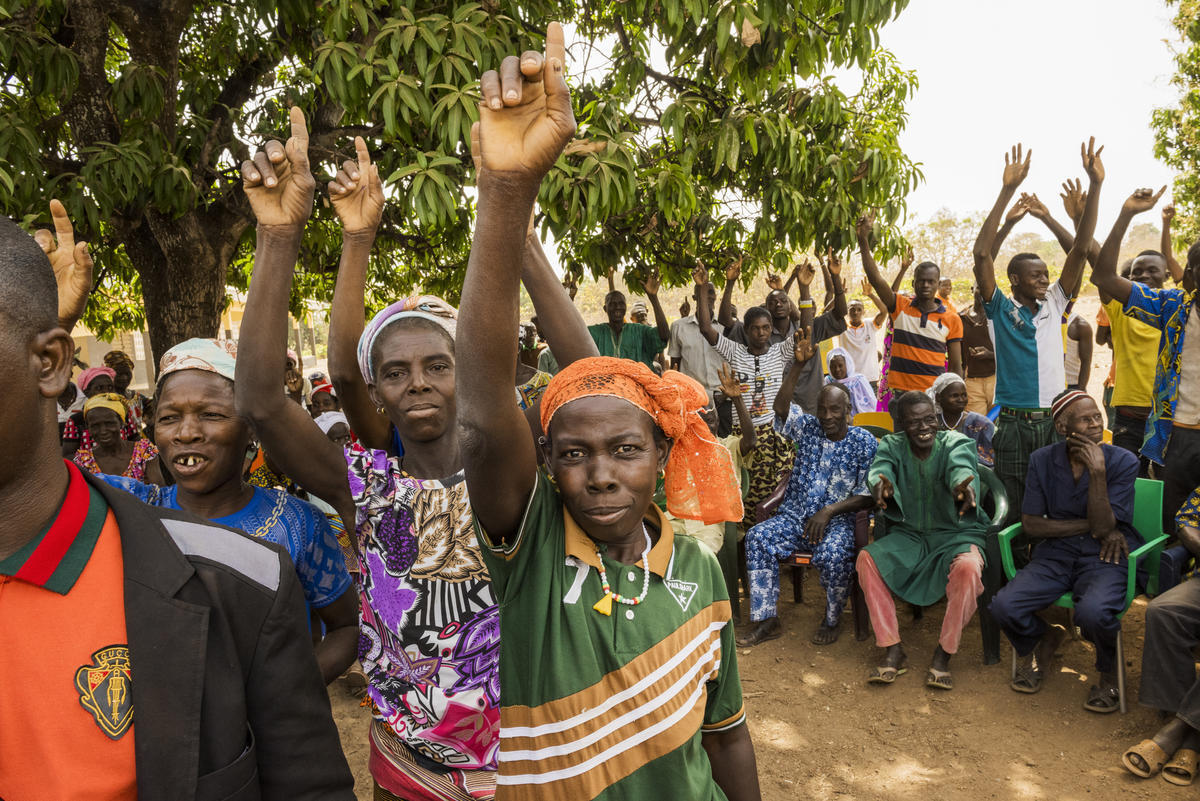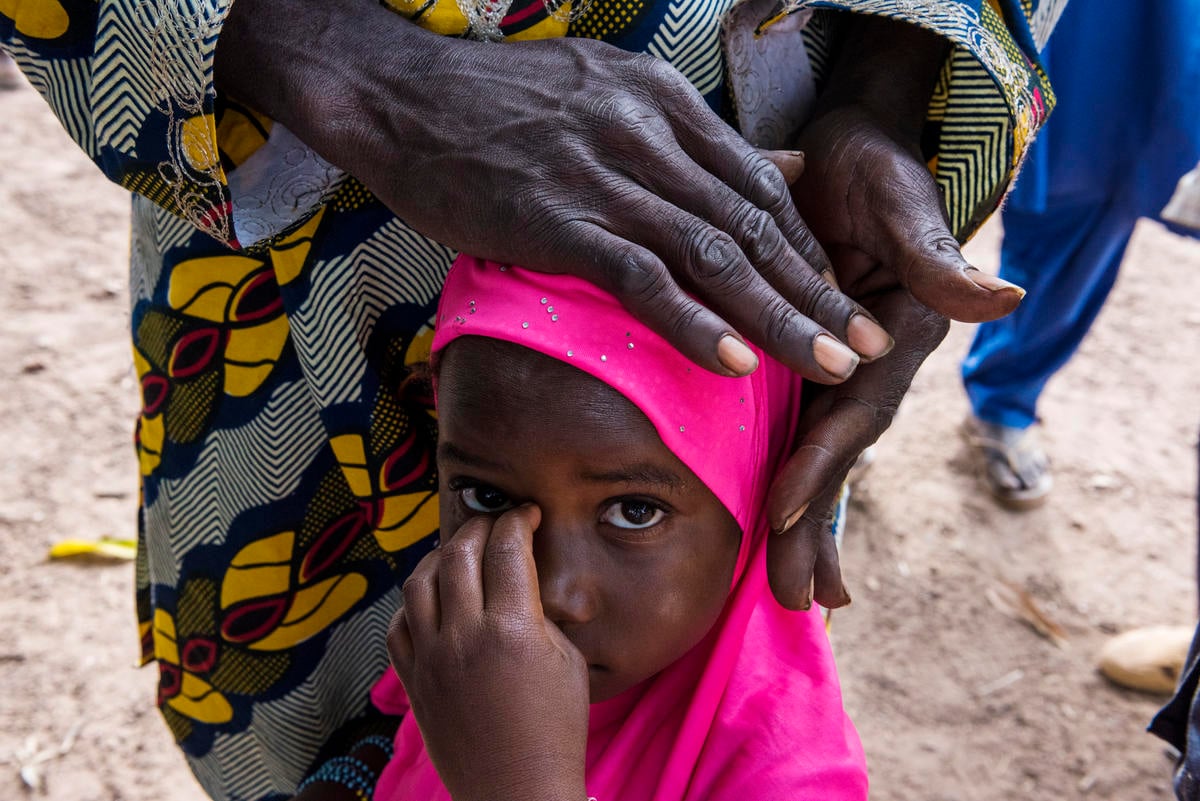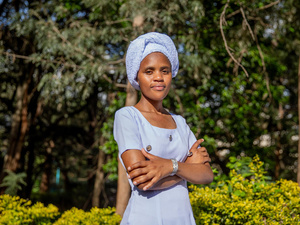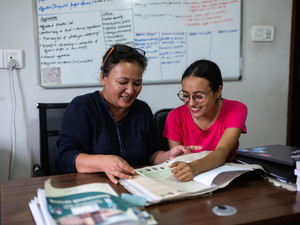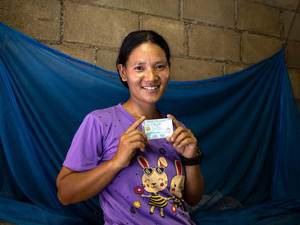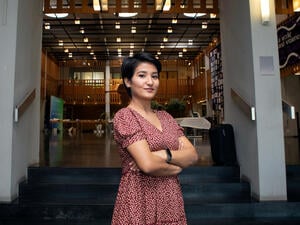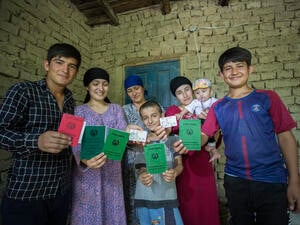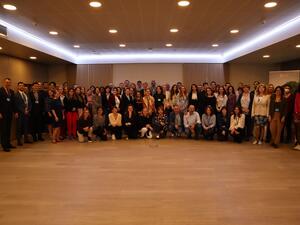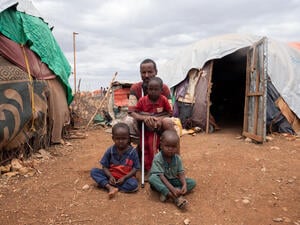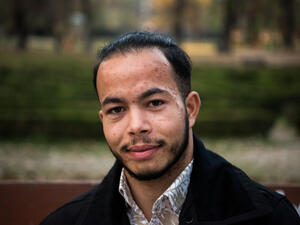Documentation drive targets excluded Côte d'Ivoire villagers
It had the trappings of a festival. There was a local band, women danced, there were speeches.
This was the lively spirit of a meeting held in Olleo, northern Côte d’Ivoire, to bring together numerous people without any papers, not even birth certificates.
The meeting was organized by the Côte d’Ivoire Women’s Legal Aid Association with support from UNHCR, the UN Refugee Agency.
More than 500 people turned out. When Rosine Zouassi, from the association, asked people without documents to raise their hands, a dense crowd rushed forward to surround her, many with both hands hoisted above their heads.
A sense of exclusion, tinged with fear and a little hope, brought the villagers out. For generations, many families have lived on the land, without formal education for the most part, isolated, and not able to easily register their children’s birth.
“Without papers, you’re no better than a bird here.”
“I have no papers, and without them, people don’t see you as really in the village,” Zana Kongo says, sitting with his daughter Djenika. He says his father had a birth certificate, but when he was killed in a motorcycle accident, all of his belongings were stolen. “Without papers, you’re no better than a bird here,” he says.
Worldwide, there are millions of people without nationality, and many more at risk of statelessness, often because they lack documents that would prove their citizenship or right to a nationality. They face a lifetime of inequities and difficulties.
Like many others at risk of statelessness in Côte d’Ivoire, the Silué family work a large plot of land several kilometres outside the village. There they grow corn, rice and cotton.
Ngolo Silué says he is 50 but is probably older. He has earned enough money over the years to buy a motorbike, although, like many others, he is afraid to use it outside the bounds of the village and surrounding fields.
“We feel like prisoners here,” his first son, Yeo, says. “Without papers we’re scared. If you travel to town on a motorbike, you could be stopped, and then you’d be in trouble.”
Without documents, people cannot apply for an official job, study at university, or get a driving license. Thus, the sense of fear and of being prisoners in their small universe.
Down the road, in another complex of villages called Fodoulokaha, the problem is the same. The Chief of the villages is Yeo Kalimon. He thinks he is 63 or perhaps 66. Like almost everyone else here, he is without documents such as an identity card to prove his age or to give him official status.
“If I had my papers, I would have the respect of my people,” he says, “I’d be considered a real chief.”
“If I had my papers, I would have the respect of my people. I’d be considered a real chief.”
Sungary Koulibaly’s case is more concerning. He suddenly lost his eyesight when he was a child. The cause was never identified. It has not prevented him from growing crops in his field all his adult life.
“It’s almost magical,” a friend, Yeo Logba, says. “He can tell the weeds just by touching them. It’s as if he sees everything in his head.”
In Sungary’s head is a recurring pain behind his eyes. He would like to have a medical examination but the hospital is in town, a dozen kilometres away, and he is afraid to make the journey.
“If I had official documents, I could go, but now I might be stopped and bad things could happen.”
The fear is probably unfounded, Rosine Kouassi says, but it still roots him to his village. In describing his status, he chooses another animal.
“Without papers,” he says, “I am considered no better than a sheep.”
There are some encouraging factors. Unlike the Fula, a community of pastoralists whose lives straddle international borders, these villagers are considered Ivorian by blood, and therefore are not at grave risk of statelessness. Nevertheless, to obtain full nationality papers would be costly, time-consuming and dependent on the decision of a judge. Most would never even try.
Rosine Zouassi explains that they have long outrun the three-month period to declare a birth and thus obtain a birth certificate directly. In Olleo, she tells the crowd that they must sign up with their agency, who will take their official requests to a court to expedite the process.
By the end of the day, 418 villagers had signed up.
“They live in isolation in their villages,” Rosine says. “When they understand the importance of these documents, they really want us to help them get them.”
“The road will be long and there will be costs to get a nationality certificate or even an identity card. Thanks to UNHCR, we can tell them that we’ll cover those costs for them.”
Without that help, each person would have to pay to register before a court and for a medical certificate estimating their age. The cost would be at least CFA 80,000 (€120), a prohibitive amount for almost all.
Rosine from the Women’s Legal Aid Association spends weeks on the road, going from village to village to preach the need for documents to people. Her work is at the heart of a campaign backed by UNHCR.
“It hurts me that I didn’t go to school. I want my son to go so that afterwards he can help me.”
It started in 2015 with the Abidjan Declaration committing the 15 African countries that make up the Economic Community of West African States, or ECOWAS, to working to reduce statelessness. Two years later they made it a binding commitment. The goal now in Côte d’Ivoire is to have new legislation adopted that will make the path to identity cards and even nationality much smoother.
In Olleo, the message is getting through. Villagers like Sinali, the second son of Ngolo Silué, registered with the Women's Legal Aid Association. He wants to send his son to school.
“It hurts me that I didn’t go to school,” he says. “I want my son to go so that afterwards he can help me.”
That help would take the form of reading documents, helping to speed the process of obtaining official papers.
Preventing and reducing statelessness is part of UNHCR’s global mandate. Learn more
You can learn more about UNHCR’s #IBelong Campaign to End Statelessness.

